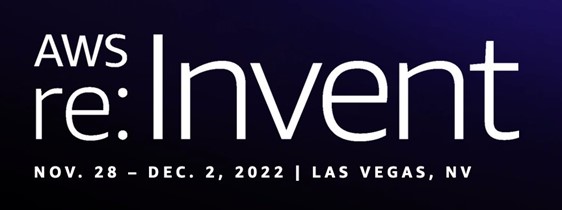AWS Compute Blog
Category: Events
The attendee’s guide to the AWS re:Invent 2025 Compute track
From December 1st to December 5th, Amazon Web Services (AWS) will hold its annual premier learning event: re:Invent. There are over 2000+ learning sessions that focus on specific topics at various skill levels, and the compute team have created 76 unique sessions for you to choose. There are many sessions you can choose from, and we are here to help you choose the sessions that best fit your needs. Even if you cannot join in person, you can catch-up with many of the sessions on-demand and even watch the keynote and innovation sessions live.
The attendee’s guide to the AWS re:Invent 2024 Compute track
This post is written by Markus Adhiwiyogo, Senior Product Marketing Manager at Amazon Web Services (AWS) From December 2nd to December 6th, AWS will hold its annual premier learning event: re:Invent. At this event, attendees can become stronger and more proficient in any area of AWS technology through a variety of experiences: large keynotes given […]
Introducing quorum queues on Amazon MQ for RabbitMQ
This post is written by Vignesh Selvam (Senior Product Manager – Amazon MQ), Simon Unge (Senior software development engineer – Amazon MQ). Amazon MQ for RabbitMQ announced support for quorum queues, a type of replicated queue designed for higher availability and data safety. This post presents an overview of this queue type, describes when you […]
The attendee’s guide to the AWS re:Invent 2023 Compute track
This post by Art Baudo – Principal Product Marketing Manager – AWS EC2, and Pranaya Anshu – Product Marketing Manager – AWS EC2 We are just a few weeks away from AWS re:Invent 2023, AWS’s biggest cloud computing event of the year. This event will be a great opportunity for you to meet other cloud […]
Automatically delete schedules upon completion with Amazon EventBridge Scheduler
Amazon EventBridge Scheduler now supports configuring automatic deletion of schedules after completion. Now you can configure one-time and recurring schedules with an end date to be automatically deleted upon completion to avoid managing individual schedules. Amazon EventBridge Scheduler allows you to create, run, and manage schedules on scale. Using EventBridge Scheduler, you can schedule millions […]
Serverless and Application Integration sessions at AWS re:Invent 2022
AWS re:Invent 2022 is only a few weeks away, featuring an exciting slate of sessions on Serverless and Application Integration. This post highlights many of the sessions we are hosting on Serverless and Application Integration. It groups sessions by theme to help you quickly find the sessions most interesting to you.
Benefits of migrating to event-driven architecture
Two common options when building applications are request-response and event-driven architecture. In request-response architecture, an application’s components communicate via API calls. The client sends a request and expects a response before performing the next task. In event-driven architecture, the client generates an event and can immediately move on to its next task. Different parts of […]
Working with events and the Amazon EventBridge schema registry
Event-driven architecture, at its core, is driven by producers creating events and subscribers being made aware of those events and acting upon them. An event is a data representation of something that happened elsewhere in the application or from an outside producer. When building event-driven applications, it is critical to determine what events exist in […]
Building an event-driven application with Amazon EventBridge
In event-driven architecture, services interact with each other through events. An event is something that happened in your application (for example, an item was put into a cart, a new order was placed). Events are JSON objects that tell you information about something that happened in your application. In event-driven architecture, each component of the […]
Getting started with event-driven architecture
In modern application development, event-driven architecture is becoming more prominent because it can make building applications in the cloud easier. Event-driven architecture can allow you to decouple your services, which increases developer velocity, and can make it easier for you to debug applications. It also can help remove the bottleneck that occurs when features expand […]









